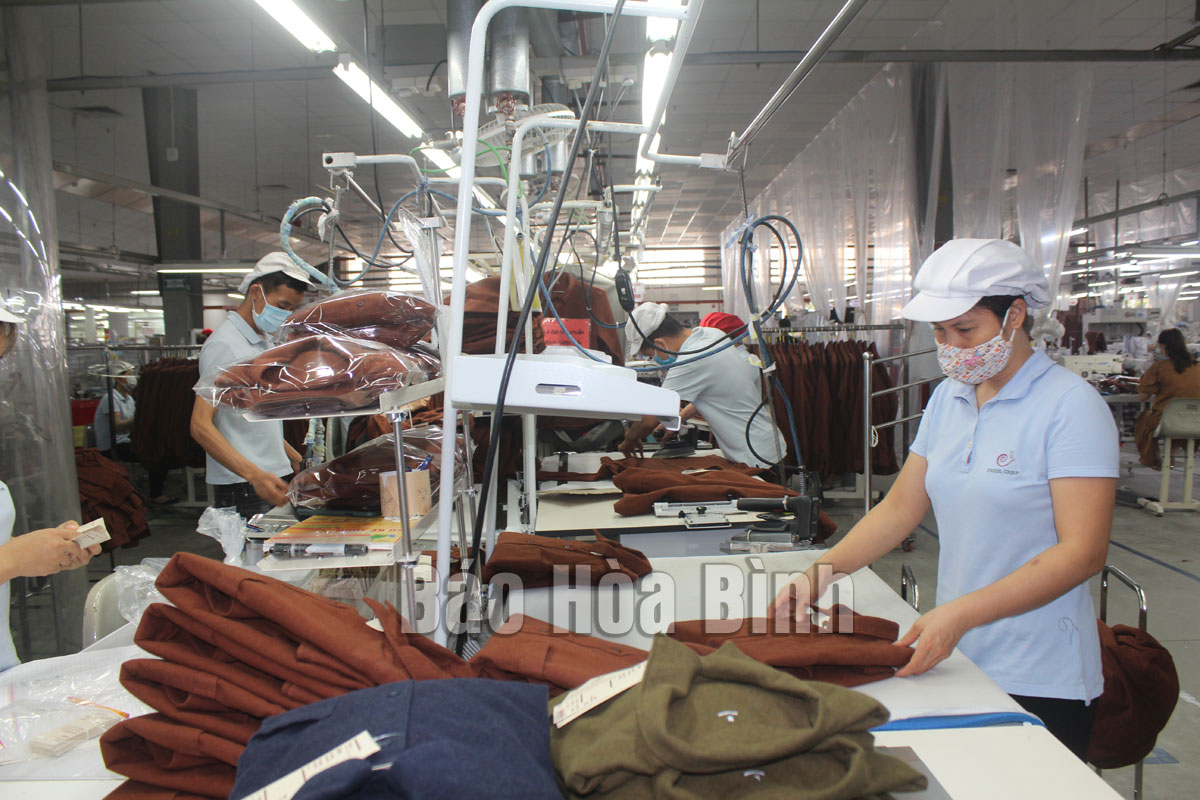
(HBO) - Hoa Binh province has worked to step up economic integration, improve business climate in a bid to increase strength and capitalise on favourable conditions to expand markets and make breakthroughs in sustainable development
Over the years, due attention has been paid to communications on
foreign policies and international integration of the Party and State
as well as the province’s achievements in socio-economic development and
culture, thus contributing to drawing foreign organisations and firms to
explore investment and business opportunities in the locality.
Esquel garment-textile company located at the Luong
Son industrial park greatly contributes to the province’s export revenue.
The province has issued numerous programmes and plans on the implementation of
free trade agreements (FTA) with links to the Comprehensive and Progressive
Agreement for Trans-Pacific Partnership (CPTPP), the EU-Vietnam FTA (EVFTA) and
other important documents on external relations.
The provincial People’s Committee has devised plans on legal support for
businesses, arranged programmes and events on legal issues and contents of Law
on Investment and the revised Law on Enterprises.
It has also built a database and sent officials to relevant agencies to help
with legal support and consultation in business operations for firms and
individuals.
To improve the investment climate, the Hoa Binh People’s Committee holds
regular meetings with firms, co-operatives, dialogues with businesses and
investors of projects with huge influence on the provincial socio-economic
development so as to address their difficulties.
The province is now home to 49 export-import firms, including 26
foreign-invested ones.
To increase exports-imports, the People’s Committee has paid heed to market
development and trade promotions; completed policies on trade, finance, credit
and investment in export items; and sought to identify a list of commodities of
potential and competitive edge.
In the 2016-20, the province enjoyed a constant rise with an annual average
growth rate of 28.5 percent.
Export revenue in the first six months was estimated to near 578.88 million
USD, a year-on-year surge of 29.64 percent.
The province imported goods worth 104.98 million USD in the period, up 25.7
percent from the same period last year./.
Dao Village’s honey – a product certified with a 3-star OCOP (One Commune One Product) rating by Thong Nhat Agricultural Cooperative in Dao Village (Hoa Binh City) – is highly regarded by consumers for its quality, richness, and variety in packaging. The distinctively sweet taste of Dao Village’s honey leaves a lasting impression on anyone who has tried it.
In alignment with Project No. 07-DA/TU, issued by the Hoa Binh provincial Party Committee on November 1, 2021, Lac Thuy district has actively promoted investment and supported the sustainable development of its industrial and handicraft sectors during the 2021–2025 period. Alongside this, the district has remained committed to preserving and revitalising traditional craft villages.
Located in the northern part of Lac Thuy district, with a temperate climate and fertile soil, Phu Thanh commune has great potential and advantages in growing tea. The long-standing experience, combined with strict adherence to organic farming practices in the tea gardens, ensures that the dried tea products from Phu Thanh and Lac Thuy as a whole are sold out immediately upon production, providing a stable and prosperous life for the local people.
Amid efforts to streamline the administrative apparatus, Hoa Binh province has intensified measures to address challenges in land clearance, resettlement support, and infrastructure investment, aiming to speed up the progress of key projects.
Hoa Binh province has posted an unprecedented economic growth rate of 12.76% in the first quarter of 2025, marking its highest quarterly performance to date and positioning it as the second fastest-growing locality in the country, trailing only Bac Giang province.
Under current regulations, products in the One Commune – One Product (OCOP) programme that are rated three stars or higher must undergo re-evaluation every three months. However, in reality, some of these products fail to consistently meet the required standards, raising concerns about the sustainability of their OCOP certification. This underscores the urgent need for producers to enhance product quality and gradually develop their OCOP products into strong, marketable brands.



